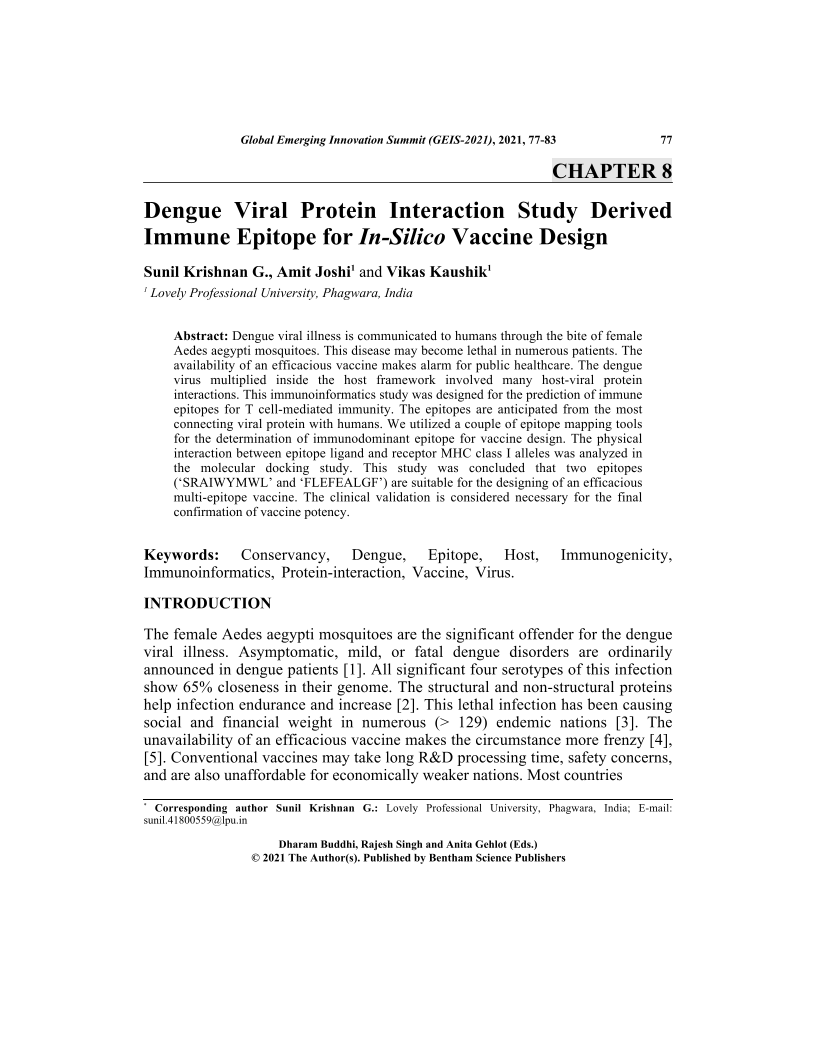oa Dengue Viral Protein Interaction Study Derived Immune Epitope for In-Silico Vaccine Design

- Authors: Sunil Krishnan G.1, Amit Joshi2, Vikas Kaushik3
-
View Affiliations Hide Affiliations1 Lovely Professional University, Phagwara, India 2 Lovely Professional University, Phagwara, India 3 Lovely Professional University, Phagwara, India
- Source: Global Emerging Innovation Summit (GEIS-2021) , pp 77-83
- Publication Date: November 2021
- Language: English
Dengue Viral Protein Interaction Study Derived Immune Epitope for In-Silico Vaccine Design, Page 1 of 1
< Previous page | Next page > /docserver/preview/fulltext/9781681089010/chapter-8-1.gif
Dengue viral illness is communicated to humans through the bite of female Aedes aegypti mosquitoes. This disease may become lethal in numerous patients. The availability of an efficacious vaccine makes alarm for public healthcare. The dengue virus multiplied inside the host framework involved many host-viral protein interactions. This immunoinformatics study was designed for the prediction of immune epitopes for T cell-mediated immunity. The epitopes are anticipated from the most connecting viral protein with humans. We utilized a couple of epitope mapping tools for the determination of immunodominant epitope for vaccine design. The physical interaction between epitope ligand and receptor MHC class I alleles was analyzed in the molecular docking study. This study was concluded that two epitopes (SRAIWYMWL and FLEFEALGF) are suitable for the designing of an efficacious multi-epitope vaccine. The clinical validation is considered necessary for the final confirmation of vaccine potency.
-
From This Site
/content/books/9781681089010.chapter-8dcterms_subject,pub_keyword-contentType:Journal -contentType:Figure -contentType:Table -contentType:SupplementaryData105

